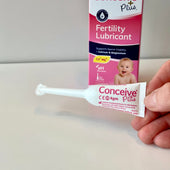How Different Contraceptives Affect Fertility

Understanding your different options for contraceptives and their effects on fertility are important for successful family planning. If you plan to start a family in the future, you should choose a birth control method that lines up with your time table. While some contraceptives have no lasting effect on fertility, some have effects that last for a year or more. It’s important to consider these effects when deciding which contraceptive option is right for you.
Condoms and Diaphragms
Condoms and diaphragms, also referred to a barrier contraceptives, only take effect when they are in use. They have no long-term effect on male or female fertility, so as soon as you stop using them, there’s no barrier to conception.
Birth Control Pills
Many women and their partners worry that using oral birth control for a long time will negatively affect their fertility. Most studies, however, have found that birth control pills do not have an effect on long-term fertility. A 2010 study by the BU School of Public Health, found that “Women who have used
IUDs
Intrauterine devices work by releasing a substance (either copper or a hormone called progestin) that prevents sperm from fertilizing an egg. Since IUDs don’t directly affect ovulation, women’s cycles typically return to normal within about a month. It usually takes a little longer for women to become pregnant; IUDs are thought to affect fertility for slightly longer than oral contraceptives. On average, it takes women about 11 months to become pregnant after having an IUD removed. Researchers do not believe there is any long-term effect on fertility.
Depo-Provera
Depo-Provera is a hormonal contraceptive that works much like birth control pills, except that the hormones are taken as an injection every three months. Because the hormones are injected into the muscles, they linger in your body and have long-lasting effects on fertility. Typically, the time it takes to return to default fertility is between 10 months and a year and a half. However, you may become pregnant as soon as three months after using Depo-Provera regularly. Because the injections take a long time to stop having an effect, you should not choose this method of contraceptive if you hope to get pregnant soon.
Conceive Plus® can help with your family planning!
Conceive Plus® products are available in pharmacies, drug stores, fertility clinics and even supermarkets in over 70 countries around the world helping millions of couples to get pregnant. Each day more and more trust our products to support their journey of starting or expanding their family.













